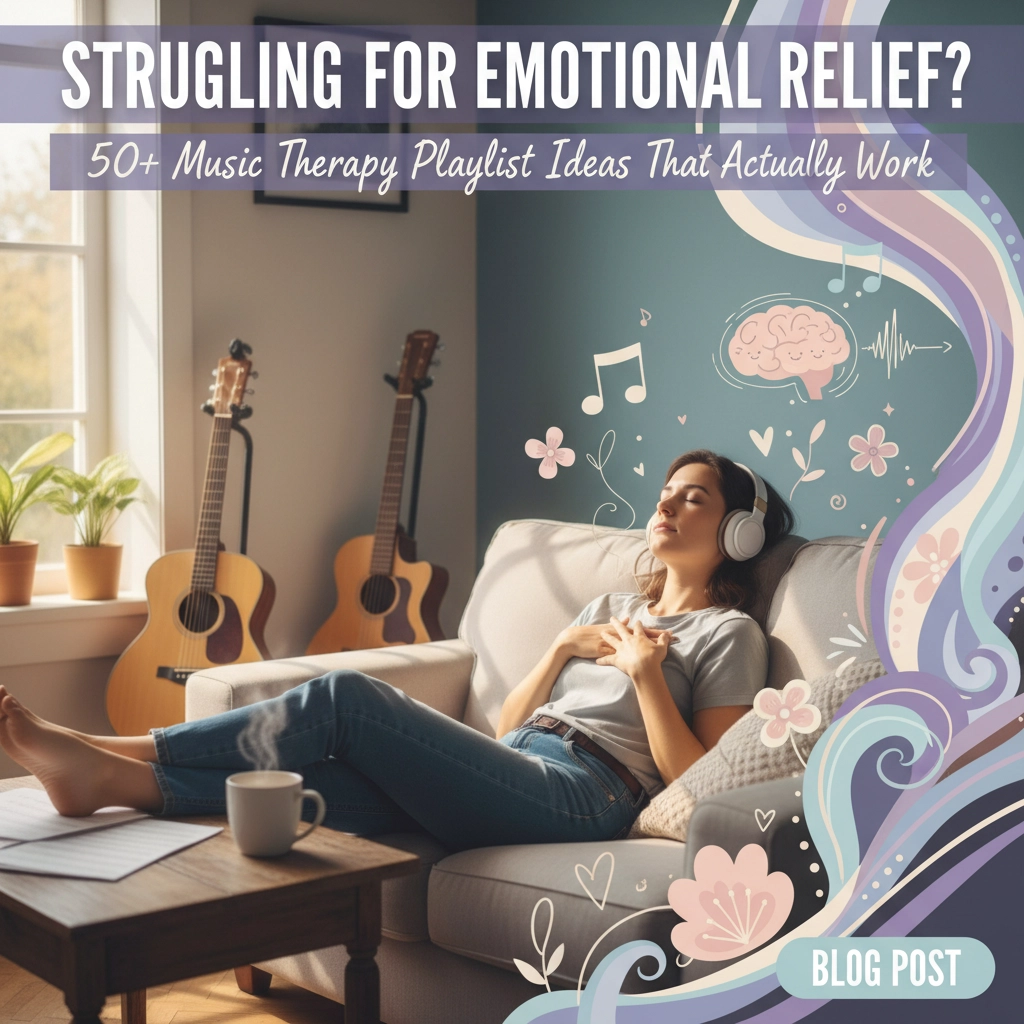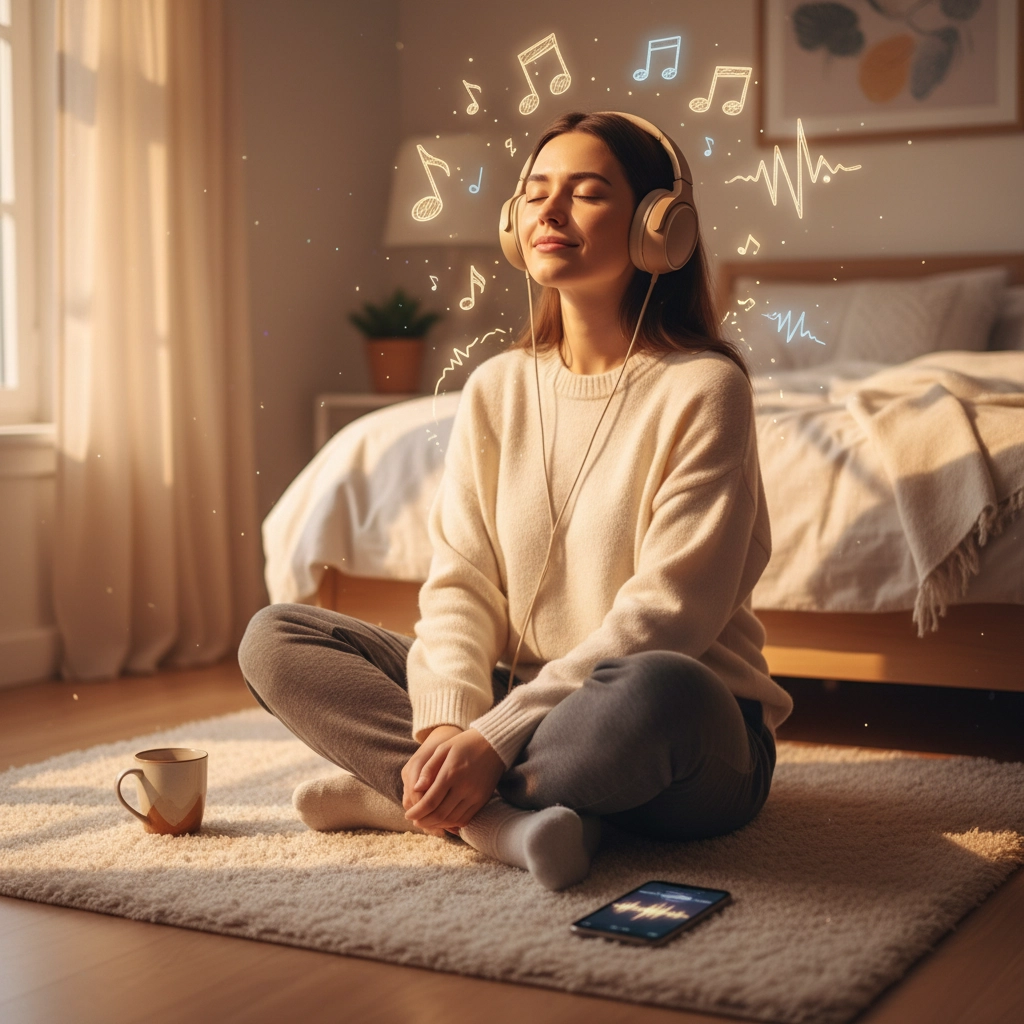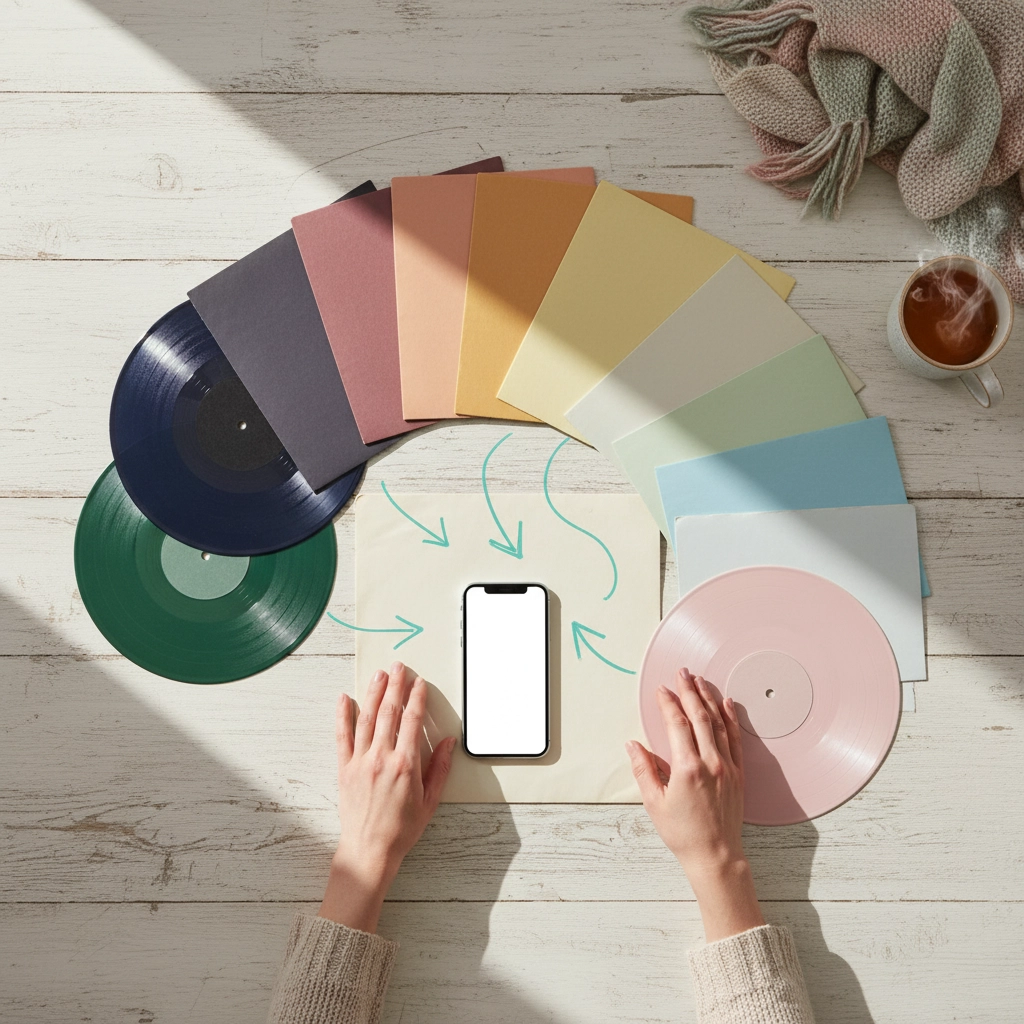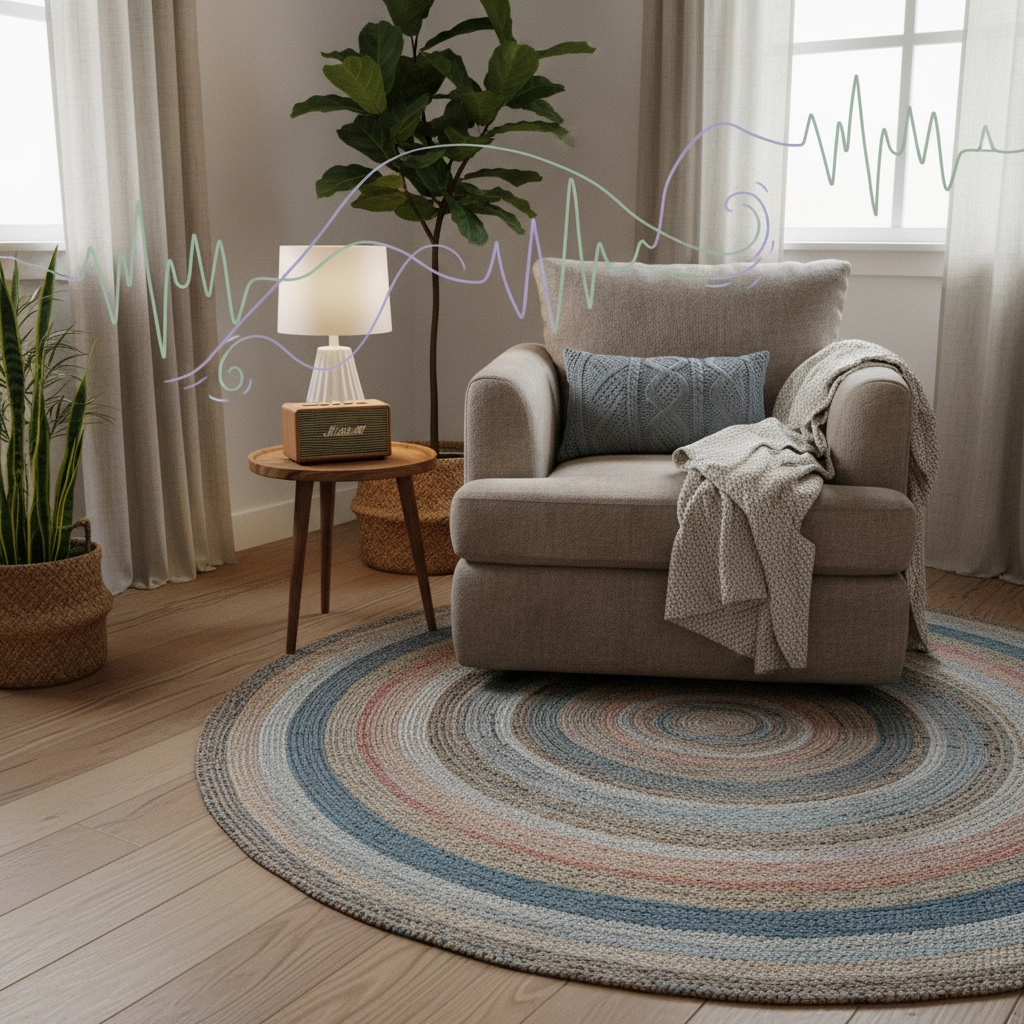Struggling For Emotional Relief? 50+ Music Therapy Playlist Ideas That Actually Work

Look, I'm not gonna bullshit you here. This last month has been really tough for me, and I know I'm not alone in this. We're all walking around carrying this invisible weight, aren't we? Some days it feels like drowning in our own heads, and honestly, sometimes the usual "self-care" advice feels like total garbage when you're in the thick of it.
But here's what I've discovered through my own messy journey with anxiety and those lovely 3 AM existential crisis moments: music isn't just background noise. It's actually medicine. And I'm not talking about throwing on some generic "chill vibes" playlist and hoping for the best. I'm talking about intentional, science-backed music therapy that actually works.
The Thing Nobody Tells You About Music Therapy
Here's what blew my mind when I first learned about this: the most effective approach isn't jumping straight to happy songs when you feel like shit. That's like trying to go from sobbing to sunshine in one leap – it just doesn't work and honestly makes you feel worse.
The real deal is starting with music that matches where you are emotionally, then gradually transitioning to where you want to be. It's called the iso-principle, and it's rooted in Dialectical Behavior Therapy (DBT). Basically, you validate your current emotional state instead of fighting it, then gently guide yourself toward balance.

Think about it – when you're pissed off, sometimes you need to listen to something that acknowledges that anger before you can move to peaceful. When you're heartbroken, you might need to sit with some melancholy before climbing toward hope. It's about meeting yourself where you are, not where you think you should be.
Playlists That Actually Move the Needle
Let me break down some playlist concepts that have legitimately helped me (and countless others) navigate the emotional rollercoaster we call life:
The Anxiety Spiral Stoppers
"Weightless" and Friends: There's this track called "Weightless" by Marconi Union that was literally designed by scientists to reduce anxiety by up to 65%. No joke – they used heart rate monitoring and brain activity measurements to craft it. I found it on Spotify's "The Most Relaxing Playlist in the World," and honestly, it works. When I'm having one of those days where my brain won't shut up, this is my go-to.
The Panic Attack Recovery Playlist: I've built one that starts with ambient sounds – think rainfall, ocean waves – then moves into soft piano like Debussy's "Clair de Lune" and Erik Satie's "Gymnopédie No. 1." These aren't just pretty songs; they're specifically chosen for their ability to slow your heart rate and activate your body's rest response.
The Emotional Regulation Collections
Anger to Peace Journey: This one starts with some heavier stuff that validates the rage – maybe some intense instrumental music or even heavier songs if that's your vibe – then gradually transitions to calmer territory. I'm talking a 45-minute journey that takes you from wanting to punch something to actually feeling human again.
The Sadness Validation Flow: Sometimes we need to sit with sadness instead of rushing to fix it. I start with melancholic tracks that acknowledge the pain, move through some neutral territory, then gently arrive at hopeful melodies. Artists like Bon Iver, Phoebe Bridgers, and even some classical pieces work beautifully here.

The Post-Therapy Processing Sessions
If you're in therapy (and honestly, we probably all should be), you know that vulnerable, raw feeling after a session? I've created specific playlists for that space. Lo-fi beats work great because they're unobtrusive – they create a gentle soundtrack for processing without competing for your attention. Same with minimal piano compositions or nature sounds mixed with ambient music.
The 3 AM Existential Crisis Soothers
We've all been there, right? It's 3 AM, you can't sleep, and your brain decides it's the perfect time to question everything about your life. For these moments, I swear by extended ambient collections. Brian Eno's ambient works, Stars of the Lid, or even longer nature soundscapes can help break that rumination cycle.
Building Your Own Emotional Toolkit
Here's the thing – what works for me might not work for you, and that's totally okay. But there are some universal principles I've learned through trial and error (and a lot of late-night Spotify deep dives):
Start with tempo matching: If your heart is racing, don't immediately jump to super slow music. Start with something moderately paced and gradually slow it down.
Pay attention to lyrics: Sometimes we need instrumental music because lyrics can trigger unwanted thoughts or memories. Other times, the right lyrics can make us feel less alone in our experience.
Create emotional arc playlists: Think of them like emotional journeys with a beginning, middle, and end. 30-60 minutes is usually the sweet spot – long enough for real shifts but not so long you get overwhelmed.

Mix familiar with new: Include some songs that already feel safe and comforting, but don't be afraid to discover new tracks that might become part of your healing repertoire.
The Science Behind Why This Actually Works
Look, I'm not a neuroscientist, but the research on this stuff is pretty incredible. Music literally changes our brain chemistry – it can slow heart rate, lower cortisol levels, and activate the parasympathetic nervous system (that's the one responsible for rest and recovery). It's not just "nice" – it's actual medicine.
When we're anxious or depressed, our nervous system is often stuck in fight-or-flight mode. The right music can help shift us into a more balanced state where healing can actually happen. It's like giving your nervous system permission to chill the hell out.
Some Real Talk About Mental Health and Music
I want to be clear about something – music therapy isn't a magic cure. If you're dealing with serious mental health challenges, please talk to a professional. But as a tool in your toolkit? It's incredibly powerful and accessible.
I've had times where the right playlist has literally pulled me out of a depressive spiral. Other times, it's just provided a gentle soundtrack for getting through a difficult day. Both are valuable. Both matter.
The beautiful thing about music is that it meets us wherever we are. Having a panic attack at 2 AM? There's a playlist for that. Feeling emotionally numb and need to reconnect with feeling? Yep, playlist for that too. Processing grief, anger, loneliness, or just the general weirdness of being human in 2025? Music's got your back.
Where to Start Your Own Musical Healing Journey
If you're feeling overwhelmed by all this, here's my advice: start simple. Pick one emotional state you deal with regularly – anxiety, sadness, anger, whatever – and create one small playlist for it. Maybe 10-15 songs that take you on a gentle journey from that state toward something more balanced.
Pay attention to how different songs make you feel, both emotionally and physically. Notice which ones help you breathe deeper, which ones make your shoulders relax, which ones help quiet the chatter in your head.
And remember, this is your journey. There's no "right" way to do this except the way that works for you.
The goal isn't to never feel difficult emotions – it's to have tools that help us navigate them with a little more grace and a lot less suffering. Music can be one of those tools, and honestly, it's one of the most accessible forms of therapy we have.
We're all just trying to figure out how to be human in a world that often feels overwhelming. If a carefully curated playlist can make that journey a little easier, a little more bearable, then I think we owe it to ourselves to give it a try.
I actually did a whole episode about how music can help us process difficult emotions – you can check it out here: https://breathebounce.blogspot.com/2025/08/episode-cxiii-negative-positivity.html
Take care of yourselves out there. And remember, you're not alone in this messy, beautiful, complicated experience of being alive.

